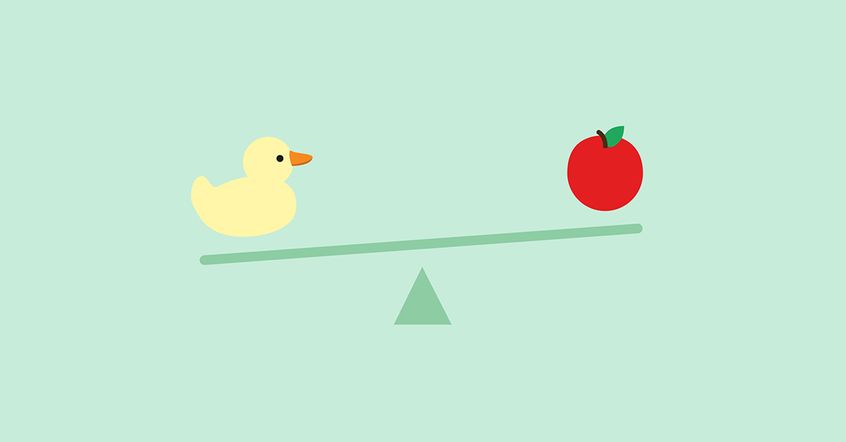Early years maths mastery: balancing work and play
Editor’s Note:
This is an updated version of a blog post published on January 15, 2020.
It’s hard to find a perfect balance between teaching and playtime in the early years. Developing maths as part of a daily routine is a great way to start.
During the early years, it’s all about balance. Children should be learning through adult-led activities but still given enough time to play. Too much work and children get restless; too little and they don’t make enough progress. Including maths talk during play can help you get the balance right.
Developing understanding with careful questioning
When children play and interact with other children, there are always opportunities for maths talk. Putting maths top of mind and providing children with careful questioning can help children develop a deep understanding of it.
“I have made a pattern, what is your pattern?”
“How many blocks taller is my model compared to yours?”
“How do we know this area is full?”
“I have three cars, how many do you have?”
“Do you have more?”
“How do you know?”
Be mindful of how much time you’re giving a child to think and answer. Again, it’s all about balance. Give learners long enough to think about their answer and give their response, but not so long that it disrupts the flow of play.
So, how do you make maths talk part of your daily classroom routine?
Adding maths talk activities to your daily routine
Developing maths talk in your daily routine gives learners a chance to understand it while using real-life concepts. It also means that children can consolidate what they have learned and practice, practice, practice!
Here are some activities to get you started.
Activity #1: how many children are at school?
There are lots of opportunities for children to count during the school day. One easy activity is to get your class to work out how many children are at school by placing a picture of themselves or a counter representation on large ten frames. This is a great way of counting and spotting patterns using ten frames.
Ask learners questions like:
“How do we know this ten frame is full?”
“How many children are absent?”
“How do you know?”
“What can you tell me about the number ___?”
Getting learners familiar with ten frames and building their number sense in the early years is great preparation for Year 1.
Activity #2: sorting and grouping objects as a class
Sorting and grouping objects as a class helps children learn to reason and look for patterns — skills they’ll need to master maths.
Give children a variety of buttons each day and ask an open-ended question like, “how can we sort the buttons?”
The children should use their critical-thinking skills and come up with a range of ideas like sorting by size, colour, pattern, and shape.
Activity #3: vote for a story
Provide an area for children to vote for a book. First, ask a child to pick two books. The rest of class then votes for their favourite book using a piece of lego. Cubes, counters, or any other abstract concrete resources will also work.
Every child has one vote a day and should place their lego piece next to the book they want to listen to during storytime. But of course, only the winning book is read.
We have great discussions on which book has won each day.
“Why?”
“How do you know?”
“How many more votes did one book have than the other?”
The rich opportunities for maths talk in this simple daily activity are endless. My class loves this activity and it’s just as effective in KS1 as well as the early years.
Children in the early years develop the concept of maths mastery through maths talk, practicing the skills they’ve learned during play, and developing number sense. The key to introducing mastery in the early years is to keep activities fun and part of your daily routine. The more learners explore maths through play, the more engaged they become.
The early years set the stage for a learner’s journey through primary school. If we work to make maths fun and relevant right from the start, then that message will carry throughout primary school and beyond.
Foundations — Your Reception Solution
This Early Years mastery programme encourages learning through play and sets children on a path to a deep understanding of maths.

